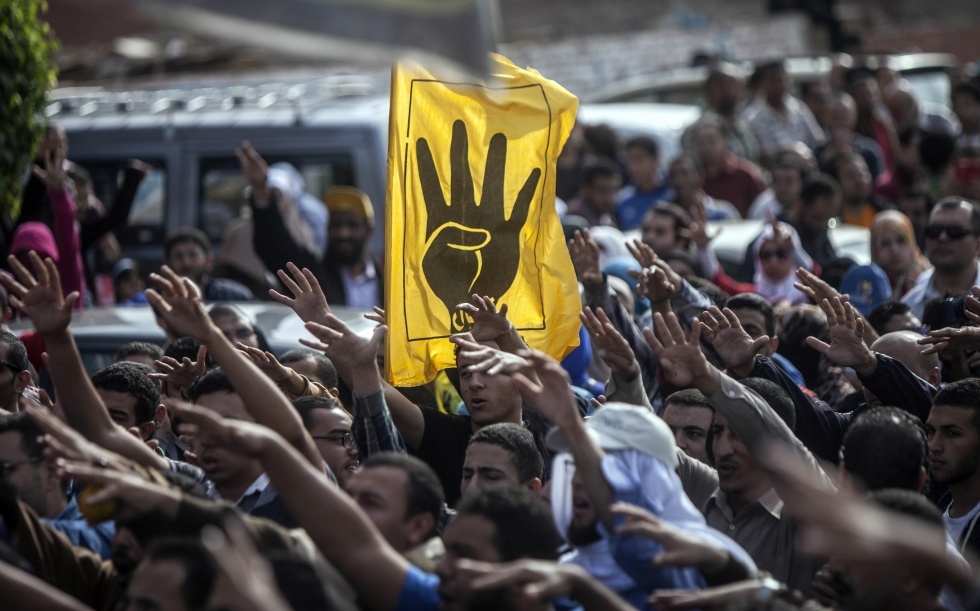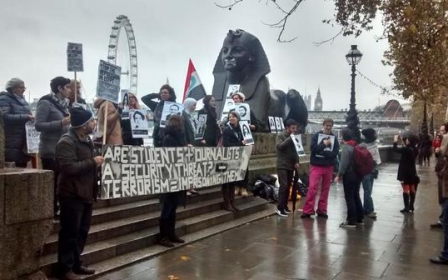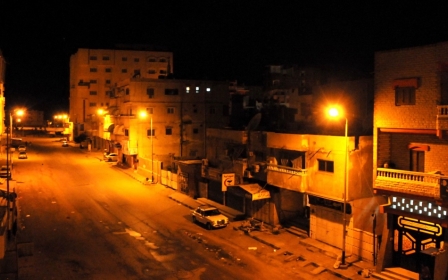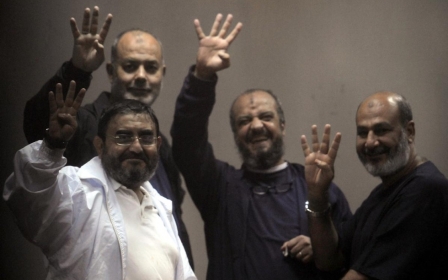Egypt arrests five Salafist leaders ahead of Friday protests

Egyptian security forces have arrested five Salafist leaders after their group called for a protest against the army later this week, authorities said on Monday.
"Five elements of a terrorist group have been arrested at home in Madinat Nasr," a suburb in northeastern Cairo, the interior ministry said on its Facebook page.
They were "leaders of sedition and planned acts of sedition, anarchy and violence on Friday," the day of their intended protest, the statement added.
The Salafi Front group confirmed on its Facebook page that five of its leaders had been arrested, including Ashraf Abdel Moneim, Hisham Mashaly, Mohamed Hassan, Mohamed Zakzouk and Abdullah Ashraf, who were holding a meeting when they were detained.
The group however also confirmed in a statement that the plans for the ‘Muslim Youth Uprising’ were still going ahead.
It has been urging people to take to the streets to mark the third anniversary of protests against the army and security forces in which around 40 people were killed over several days.
The purpose of the demonstration was to "proclaim the Islamic identity of Egypt, to oppose the Western and Zionist domination and overthrow the military regime," the Front said on Monday.
Egypt's Interior Ministry had vowed on Monday to pre-empt the Friday demonstrations by arresting organisers ahead of the date.
"We laid down a plan to arrest the organisers of the 28 November protests, even before they take place," ministry spokesman Hani Abdel-Latif told The Anadolu Agency.
The spokesman did not give further details of the plan, but said the arrest campaign would take place over the "next few days."
Movements divided
The Muslim Brotherhood has thrown its weight behind the planned demonstration but has refused to say whether or not it will take part.
Supporters of Morsi and the Brotherhood have staged regular protests since Mohamed Morsi, Egypt's first freely elected president who hails from the Brotherhood, was toppled last year by now President Abdel Fattah al-Sisi. Their ability to garner large numbers has dwindled amid a government crackdown that has killed hundreds and jailed thousands.
While the Muslim Brotherhood aims to support the demonstrations, several other moments including Al-Jamaa al-Islamiyya, Egypt’s Strong Party and 6 April movement will boycott the protests.
Ahmed El-Imam, spokesman of the Strong Egypt party, said in a statement Monday that the group will not participated in the demonstrations. The “conflict with the current authorities is over the rights and freedoms disputed by the regime. It is not a problem of identity."
The Strong Egypt party was founded by Abdel-Moneim Aboul-Fotouh, former Muslim Brotherhood leader and a 2012 presidential candidate.
El-Imam blamed the current situation of "fragmentation and setback" for "fabricated battles" like the so-called identity uprising on Friday.
The 6 April Youth Movement is also due to hold a press conference on Wednesday to explain the reasons behind its "final decision" for not taking part in Friday's protests, it said.
Mohammed Nabil, member of the political bureau of 6 April, told Al-Ahram's Arabic news website that the movement refuses these demonstrations as they will "increase congestion" in the country amid the current status of polarisation.
Furthermore, the Building and Development Party, the political wing of Al-Jamaa Al-Islamiya, a militant group that has renounced violence, announced on Sunday that it will not participate in the protests called by the Salafi Front.
Building and Development Party leader Essam Derbala said that the calls are problematic because “they focus on [Islamic] identity and Sharia Law, more than consensus,” adding that that the calls contradict Sharia, which asks Muslims to cooperate and unite.
“Calling for an Islamic Revolution will only create division among the members of Islamist movements and will increase tensions between Islamists and non-Islamists. Moreover, it will lead to violence and a crackdown by the state,” said Derbala in a statement published on the party’s website.
“Those who called for these protests must revise their position and ally with other revolutionary forces in the country,” Derbala added.
New MEE newsletter: Jerusalem Dispatch
Sign up to get the latest insights and analysis on Israel-Palestine, alongside Turkey Unpacked and other MEE newsletters
Middle East Eye delivers independent and unrivalled coverage and analysis of the Middle East, North Africa and beyond. To learn more about republishing this content and the associated fees, please fill out this form. More about MEE can be found here.




